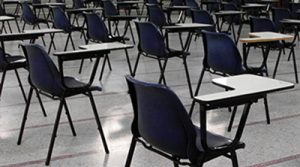Smith and Saber co-authors on study of COVID-19’s impact on research
 Study explores ‘wicked problem’ of COVID-19’s impact on research and scholarship in higher education
Study explores ‘wicked problem’ of COVID-19’s impact on research and scholarship in higher education
The COVID-19 pandemic has been a “wicked problem” for higher education, argue researchers from the University of Maine who recently published a study exploring how the first year of the pandemic affected research activities at the institution.
As is often the case with wicked problems, authors of the study say the pandemic amplified challenges that were already present in higher education, including financial instability, inequalities, and social and cultural barriers to creating communities of practice and social connections on a college campus.
To better understand the challenges raised or exacerbated by the pandemic, they surveyed more than 400 University of Maine faculty, staff and graduate students about how the first year of living with COVID restrictions affected research activities, productivity, and health and wellness, as well as how pandemic conditions made them think about adaptations to sustain or increase their scholarly work.
According to the survey, 78% of participants reported reduced research and scholarship productivity, including 83% of tenure-track faculty and 77% of graduate students.
The reasons for reduced productivity included increased work responsibilities, limited access to research fields and inadequate resources. Some specific examples were captured in qualitative survey responses. For example, one faculty member discussed not being able to access K–12 schools, where they were conducting research.
Asli Sezen-Barrie, an associate professor of curriculum, assessment and instruction at UMaine’s College of Education and Human Development led the study which was co-authored by Lisa Carter, Ph.D. student in higher education; Sean Smith, associate professor in the School of Earth and Climate Sciences and the Mitchell Center; Deborah Saber, associate professor of nursing and Mitchell Center Faculty Fellow; and Mark Wells, professor of marine sciences.
